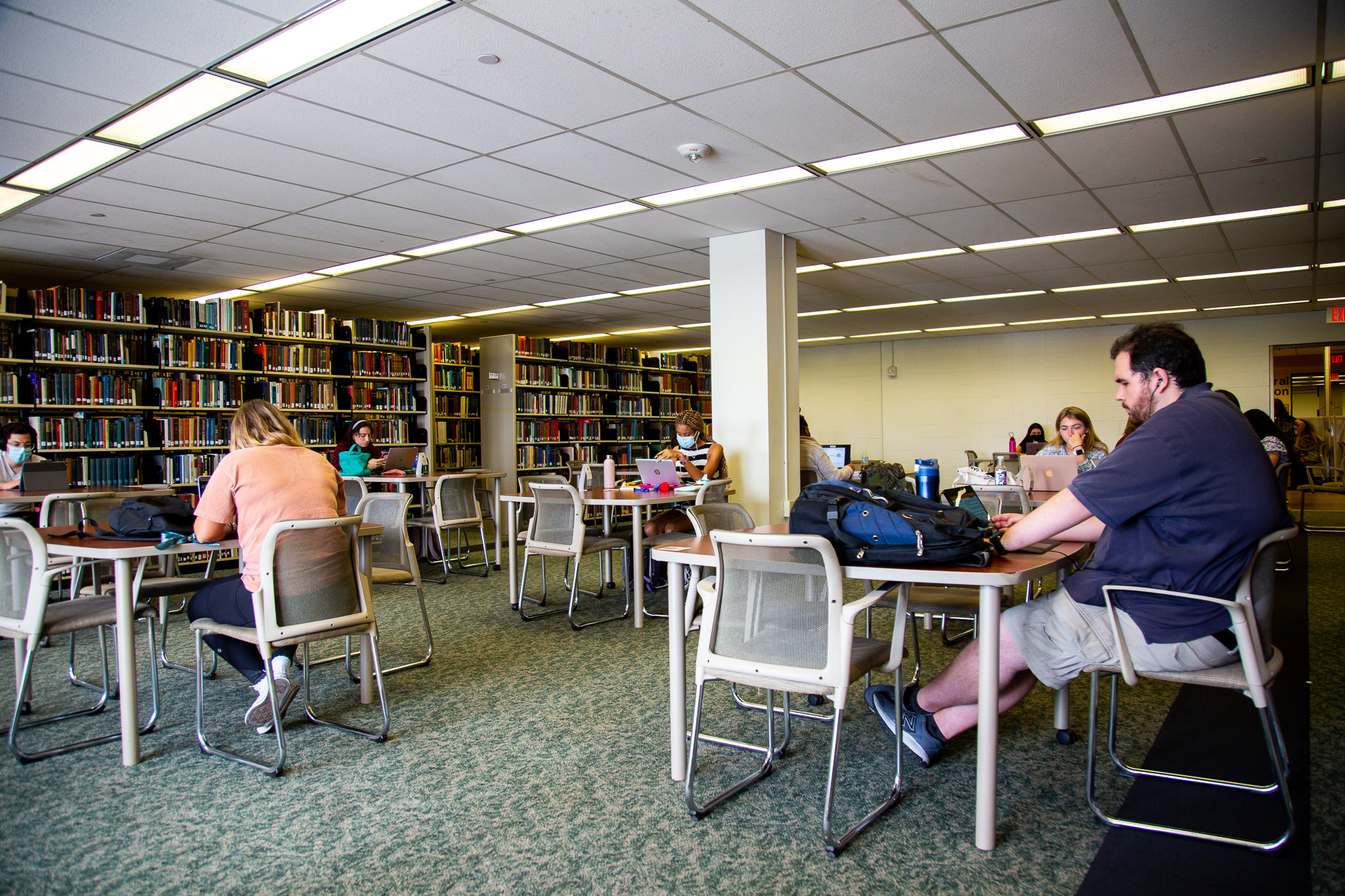USF Health experts optimistic university has ability to mitigate spread of multiple illnesses

With students returning to campus amid numerous illnesses spreading simultaneously, Chief Health Officer Donna Petersen said she is confident the university has the tools and experience it needs to control potential negative effects that may arise.
Despite illnesses such as the flu, COVID-19 and monkeypox posing potential threats to the community, Petersen said as long as students and faculty follow safety guidelines, there should be no interference with normal operations this year.
“We understand that we’re going to be welcoming people back and we’re going to be having in person classes at the level that we did pre-COVID,” she said.
“With a lot of you here, there’s gonna be a lot of activity and a lot of gathering, and that means there’s probably going to be some illness spread. But we [just need to emphasize] a lot of hand washing and a lot of attentiveness. If you don’t feel well, don’t go to that event.”
Florida has a recorded number of 1,372 cases of monkeypox as of Aug. 18, according to the Center for Disease Control and Prevention, the third highest in the country behind California’s 2,663 cases and New York’s 2,744.
The state also holds a seven-day average of 6,488 COVID-19 cases as of Aug. 21. Florida is third in the U.S. behind the seven-day averages of Texas’ 8,286 and California’s 11,583.
On top of these numbers, this year’s flu season is expected to be extremely active and post high numbers in the fall, according to Petersen.
“Everyone’s focused on COVID-19 and monkeypox, but remember, it’s also flu season,” she said. “We’ve already seen early cases and some people getting pretty sick. We really want people to get flu shots.”
To combat any concerns these illnesses may bring to the community, Petersen said keeping in touch with any symptoms and getting vaccinated for the flu, COVID-19 and monkeypox is crucial.
Students are still responsible for isolating themselves off campus should they experience any symptoms or test positive for an illness. However, Petersen said while making room for isolation spaces on campus is not currently in the official plans, it’s not out of the question should an emergency arrive.
“There’s a possibility that we may need isolation spaces while we figure out how to get someone where they can be safely taken care of off campus. We can’t put someone who’s going to pose a risk to other people that we know of into that environment and nor can we just tell you to leave the campus and go on to the community,” she said.
“Right now, the plan is hopefully they can get home, and if they can’t get home in either one of those cases, we have different options that we’re working on right now to try to accommodate that situation should it arise.”
Upon scheduling an appointment with Student Health Services, students are able to receive appropriate medical care and select from several vaccine options, according to Petersen. The on-campus clinic offers the Pfizer, Moderna and Johnson & Johnson COVID-19 vaccines, along with booster shots for eligible individuals.
Per USF Health’s strategy to reduce the infection rate of monkeypox, health services are distributing its vaccines, encouraging the USF community to take preemptive action.
Both COVID-19 and monkeypox vaccines will be offered Wednesday afternoons at all three campuses, although flu shots are not yet available at USF and will be announced at a later date, according to Petersen.
In general, Petersen said students must be cognizant of the signs and symptoms of monkeypox in order to enact precautionary practices like vaccinations and self-isolation.
Monkeypox is primarily transmitted via skin-to-skin contact and through cross-contamination of inanimate objects. Individuals should avoid sharing towels, clothing and handling attire from medical facilities without proper disinfection.
In addition to close contact, Petersen said the virus is easily transferred through exposure to respiratory droplets and bodily fluids.
Symptoms embark in the form of skin rashes, which appear pimple-like and can be mistaken for chickenpox lesions, according to Petersen. In addition, common-cold symptoms are present and include headaches, lethargy, nasal congestion, sore throat and coughing.
Although Petersen believes the university is ready to handle students returning, a plan is in development should the number of positive cases increase, she said.
“We’d love to have something in place next week, [but] things are always more complicated than you wish they would be,” she said. “We have a responsibility to the larger community as well, so we are actively engaged in that pursuit.”







